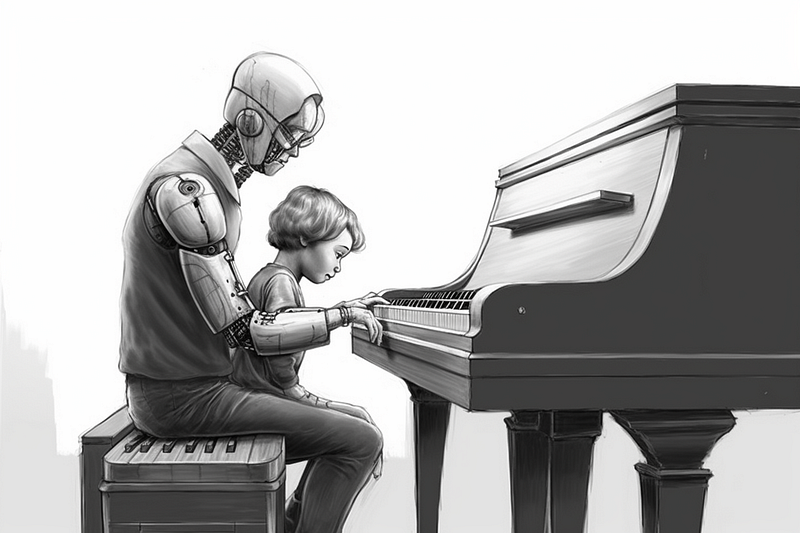Preparing for a Future with Superintelligence: Insights from OpenAI
Written on
The Rise of Superintelligence
Envision a reality in which machines not only assist us but also surpass our cognitive abilities, dominating human competencies across various fields. This notion, once confined to the realms of science fiction and literary imagination, is swiftly transitioning into a concrete future. The emergence of artificial superintelligence is accelerating at an unforeseen pace.
In response to growing concerns, some have even proposed halting AI advancements. Recently, OpenAI issued a cautionary statement in their blog. In summary, AI and superintelligence may rival the productivity of major corporations within a decade. The risks associated with superintelligence are analogous to those posed by nuclear technology and synthetic biology. To address these challenges, establishing an international body for the oversight of superintelligence is recommended. Despite the dangers, pursuing superintelligence is viewed as crucial due to its vast potential and increasing viability. Less advanced AI models should face lighter regulations.

Image by the author & Midjourney
The Journey Towards AGI
To recap, OpenAI was co-founded by Elon Musk, Sam Altman, and others with the goal of creating safe and beneficial artificial general intelligence (AGI). AGI refers to highly autonomous systems capable of outperforming humans in most economically significant tasks, which entails developing machines that genuinely comprehend the world, demonstrate creativity, and learn from minimal data.
However, OpenAI is now discussing “future AI systems that are significantly more advanced than AGI,” indicating the potential rise of superintelligent entities that would not just match human intelligence, as AGI does, but vastly exceed it.

Image by the author & Midjourney
Anticipating the Inevitable
OpenAI provides a clear and urgent directive: the time to strategize for the arrival of AGI (and the subsequent developments) is now. According to Sam Altman, CEO of OpenAI, it is vital to prioritize the governance of superintelligence within the next decade and to cultivate a global cooperative framework to ensure the development of AGI aligns with humanity's best interests.
This proactive stance is particularly crucial given the potential challenges that advanced AI may introduce sooner than expected, including:
- Misinformation Surge: The rise of sophisticated deepfakes could lead to widespread misinformation, distorting truths in media and facilitating deception (to understand the implications, consider examining notable deepfake incidents).
- Cultural Transformation: Advanced AI might redefine societal norms and cultural structures, potentially unsettling established lifestyles.
- Job Displacement: As AI systems excel beyond human capabilities in economically valuable tasks, traditional employment could be threatened, resulting in significant societal and economic ramifications.
- Ethical Dilemmas in Warfare: The advent of superintelligent systems could introduce advanced autonomous weaponry, raising complex ethical issues related to control and accountability, while also presenting new security risks.
In the first video, "OpenAI's Biggest Fear Is Coming True (AGI BY 2027 But NOT by OpenAI)," the discussion revolves around the escalating concerns regarding AI advancement and its implications on society.
The second video titled "Did OpenAI Unlock Super Intelligence?? What Happens Next?!" explores the potential outcomes and future scenarios following the advancements in AI capabilities.
Stay connected with the latest developments in the creative AI domain — consider following the Generative AI publication for ongoing updates.